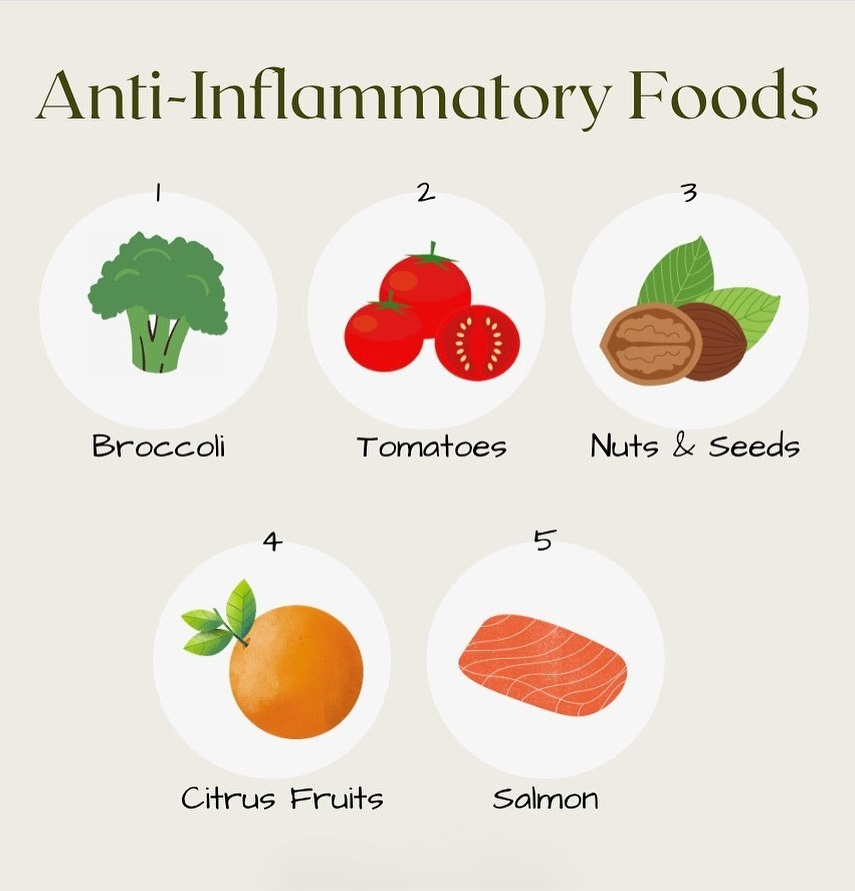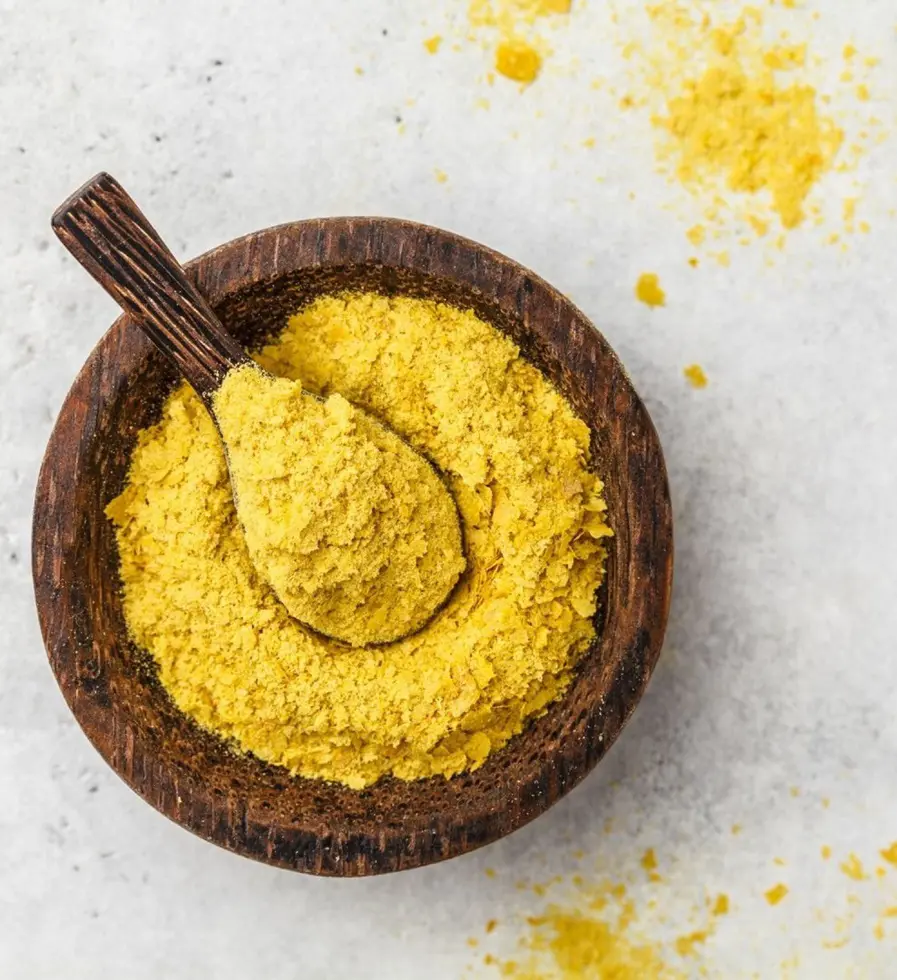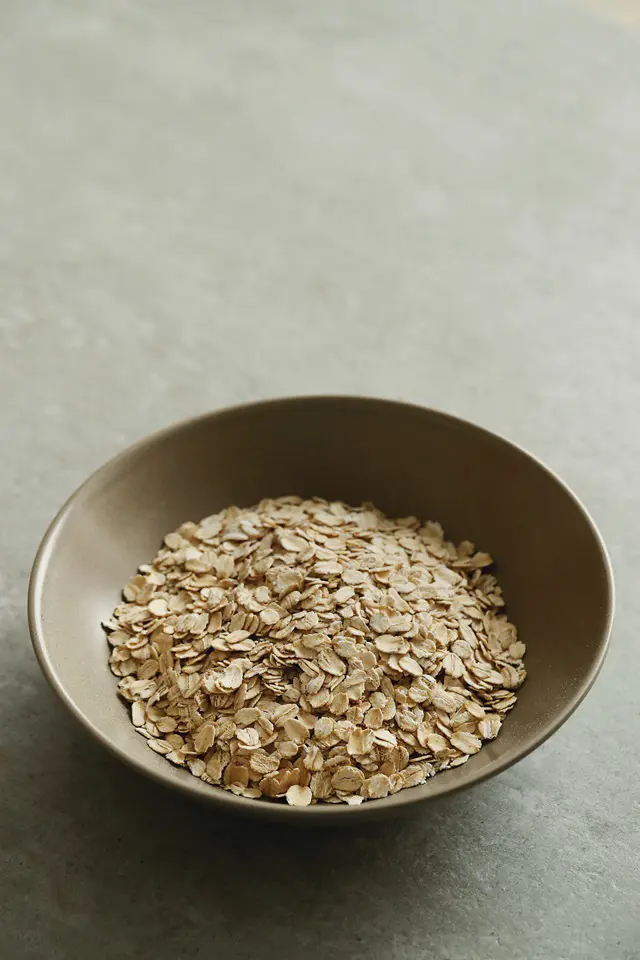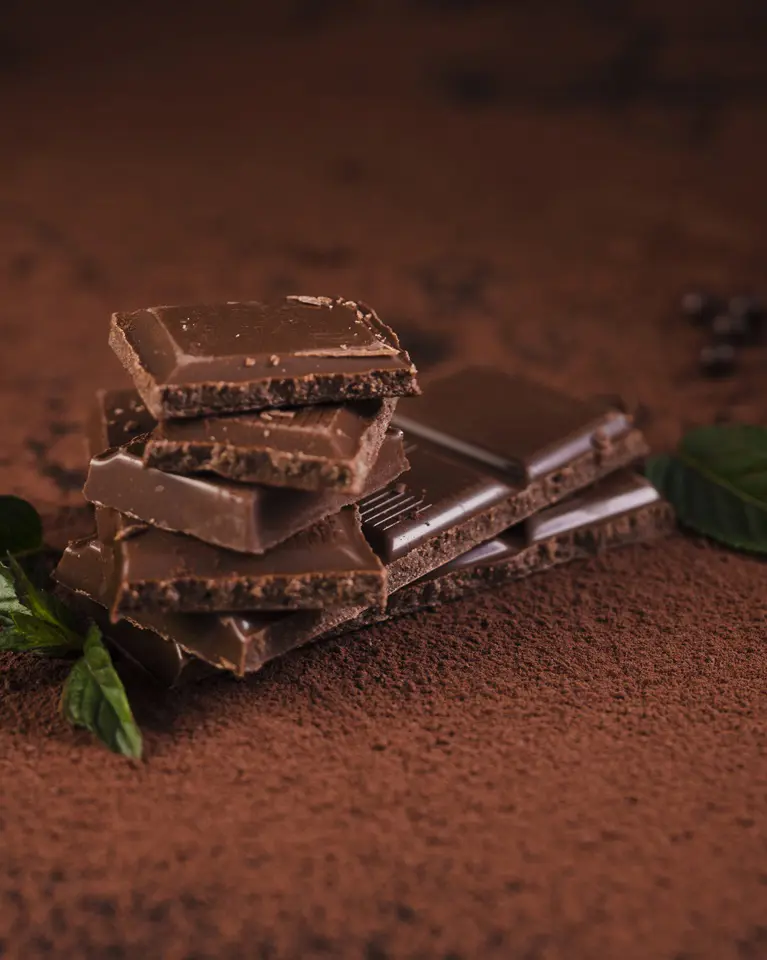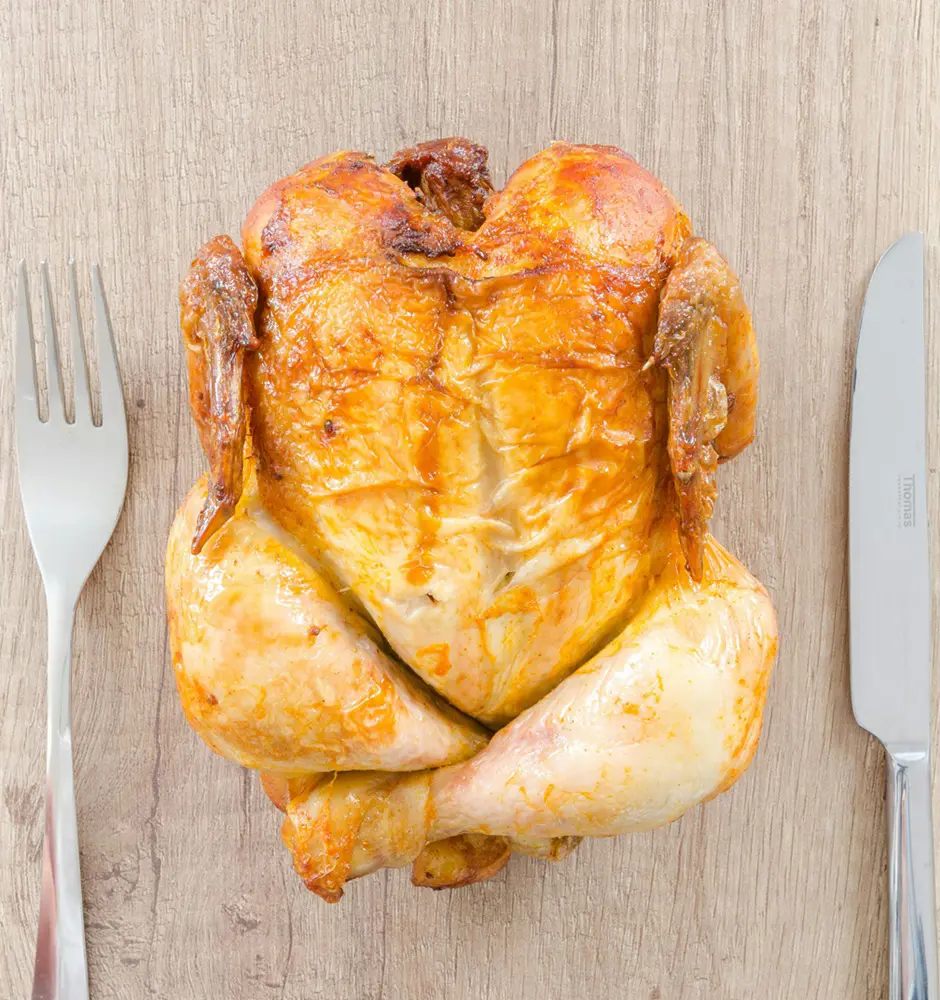15 Natural Home Remedies For Dandruff And Dry Scalp

This post may contain affiliate links. If you make a purchase through links on our site, we may earn a commission.
Dandruff and dry scalp are common conditions that can be embarrassing and uncomfortable at the same time. While medicated shampoos can be effective, many people prefer a more natural approach.
This blog explores 15 natural home remedies using ingredients you might already have in your kitchen or pantry. These remedies are all-natural, easy to use, and can help soothe irritation, reduce flaking, and restore moisture balance to your scalp. So ditch the harsh chemicals and embrace the power of nature to achieve a healthy, flake-free scalp.
1. Garlic with Green Tea
Garlic contains allicin, a compound with antifungal properties that might help combat the Malassezia fungus associated with dandruff. Green tea, on the other hand, is rich in antioxidants that may help reduce scalp inflammation, a potential contributor to dandruff.
Just mince a clove of garlic and mix it with green tea solution, a carrier oil, and some honey. Apply it on your scalp and let it sit for 15-20 minutes. After that, wash your hair thoroughly with your trusted shampoo and you're done!
2. Coconut Oil with Lemon
Coconut oil and lemon juice are among the most popular home remedies for dandruff due to their complementary properties. Coconut oil is rich in fatty acids, such as lauric acid, which deeply hydrate the scalp, potentially reducing dryness and flaking. Its antimicrobial properties may also help combat the yeast-like fungus Malassezia, which is a common cause of dandruff.
On the other hand, lemon juice, with its natural acidity, gently exfoliates the scalp, helping to remove dead skin cells and flakes. The citric acid in lemon juice can help balance the pH level of the scalp, further reducing the potential for dandruff formation. When combined and applied to the scalp, this mixture might regulate oil production, creating a less favorable environment for Malassezia to thrive, thereby reducing dandruff.
3. Basil Leaves
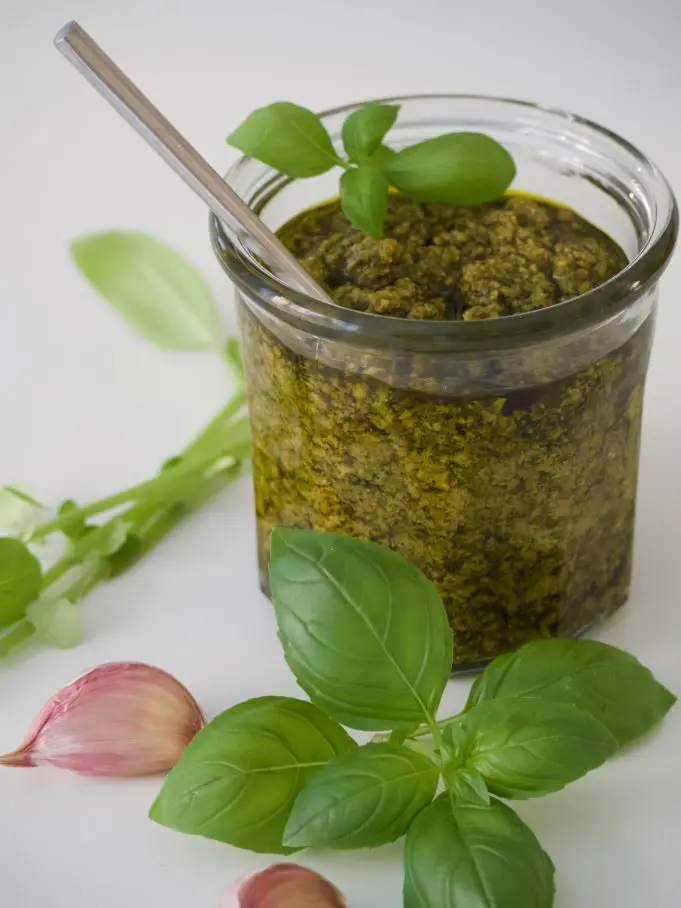
Basil contains essential oils like eugenol and linalool, which have shown antifungal properties in laboratory studies. These properties could potentially help combat the Malassezia fungus that contributes to dandruff. Just use clean basil leaves and mash them using a little water and some carrier oil until you get a thick paste. Apply the paste on your scalp, focusing on areas with dandruff flakes.
You can use your fingertips or a cotton pad to massage it in gently. Then, cover your hair with a shower cap (optional) and let the mixture sit on your scalp for 20-30 minutes. Lastly, rinse your hair and scalp thoroughly with lukewarm water to remove all traces of the basil mixture. You may need to shampoo to remove any leftover residue.
4. Yoghurt and Honey
Not just for dandruff, yogurt and honey are often used for various skin conditions due to their beneficial properties. The live bacteria (probiotics) in yogurt might help restore a healthy balance of microbes on your scalp, promoting a healthier environment and potentially reducing dandruff. Additionally, the lactic acid in yogurt gently exfoliates, removing dead skin cells and flakes, contributing to a cleaner scalp.
Honey's antimicrobial properties could fight dandruff-causing microbes, while its humectant nature might soothe and moisturize a dry, itchy scalp, preventing further irritation and flaking. However, a patch test is crucial to avoid any potential sensitivities to dairy or sugar, as these could irritate your scalp. This step ensures that the treatment will be beneficial and not cause any adverse reactions.
5. Banana With Apple Cider Vinegar
Banana and apple cider vinegar combine a hydrating and potentially anti-dandruff punch. The mashed banana provides moisture to a dry, itchy scalp, while its soft texture might gently remove flakes. Also, the acidity of apple cider vinegar could create an environment that is less favorable for the fungus that contributes to dandruff.
Additionally, its astringent properties might help regulate oil production on the scalp. However, remember that scientific evidence for this remedy is limited. Be cautious, as the vinegar's acidity can irritate sensitive scalps, so dilution with water is essential.
6. Tea Tree Oil
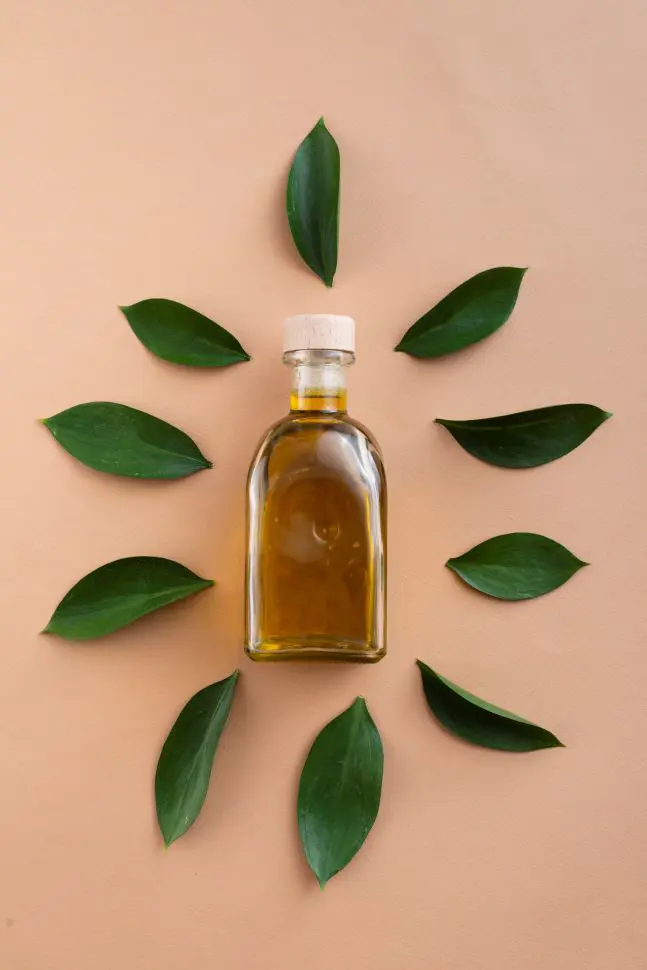
Tea tree oil has potent antifungal and antibacterial properties. This is important because dandruff is associated with the overgrowth of a fungus called Malassezia. By combating this fungus, tea tree oil could help reduce flaking and irritation. Dandruff can sometimes involve scalp inflammation.
This oil's anti-inflammatory properties may further help soothe the scalp and reduce redness and itchiness. Similarly, it can be calming and help regulate oil production on the scalp, potentially creating a less hospitable environment for dandruff-causing microbes.
7. Aloe Vera
Aloe vera, the succulent plant with spiky leaves, has been a staple in natural medicine for centuries. Evidence of its use dates back to ancient civilizations, including Egyptians, Greeks, Romans, and Chinese cultures. Interestingly, its application for scalp conditions like dandruff also has a long history.
While the exact reasons for using aloe vera on the scalp might not be explicitly stated in these historical accounts, it's likely its cooling and soothing properties were observed to be beneficial for dandruff-related itchiness and discomfort. In modern times, scientific studies suggest aloe vera may possess antifungal properties, potentially lending credence to its historical use for scalp conditions like dandruff.
8. Baking Soda
Baking soda is a common household item that many people swear by for treating dandruff. Its mildly abrasive texture can help exfoliate the scalp, removing dead skin cells that contribute to dandruff flakes. By gently scrubbing away these flakes, baking soda may help keep the scalp cleaner and reduce the buildup of skin cells.
To use baking soda for dandruff, mix it with a carrier oil such as coconut or olive oil to create a paste. The oil not only helps to deliver the baking soda effectively but also provides additional moisture to the scalp, which can be beneficial for those with dry skin. Massage this mixture gently into your scalp, ensuring that it reaches the roots of your hair and covers all affected areas. Leave it on for a few minutes to allow the baking soda to work its magic before rinsing thoroughly.
9. Listerine Mouthwash
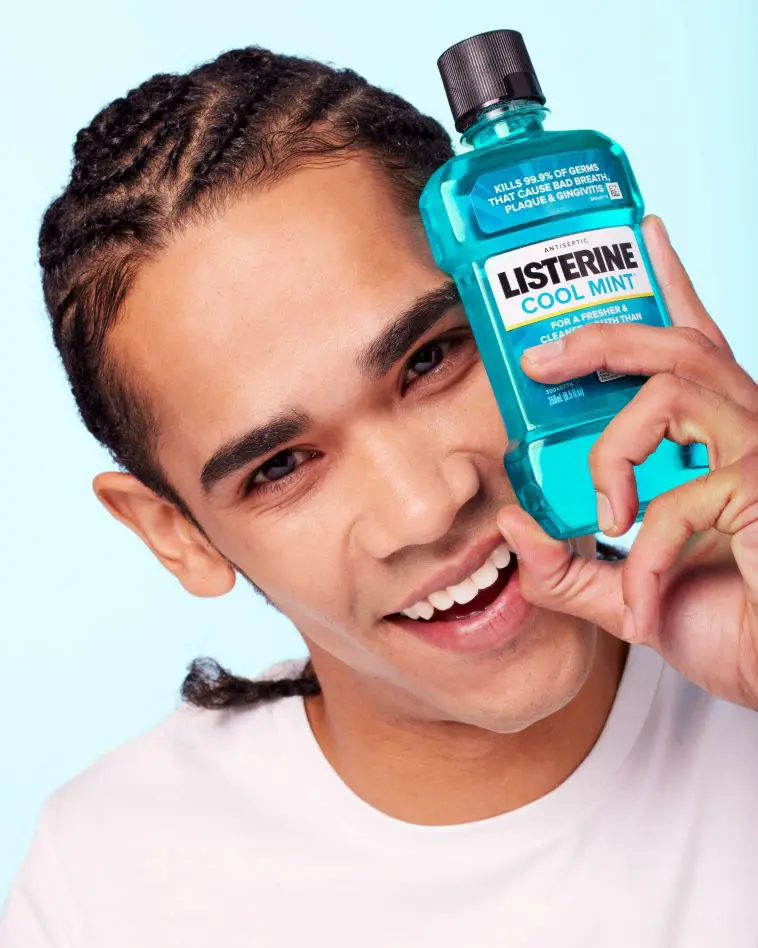
Mouthwash's diverse ingredients, including fluorides, chlorides, essential oils, and sometimes hydrogen peroxide, have led some people to believe it can be a secret weapon against dandruff. The logic goes like this: mouthwash boasts antiseptic and antifungal properties that effectively target bacteria in the mouth.
Perhaps, they reason, these same properties can be harnessed to combat dandruff-causing microbes on the scalp.
10. Fenugreek Seeds
Fenugreek seeds offer a potential natural solution for dandruff. To use them, soak a couple of tablespoons in water overnight. In the morning, grind the softened seeds into a paste. For additional benefits, add a touch of yogurt or lemon juice (be cautious of sensitivities).
Apply the paste directly to your scalp, focusing on areas with dandruff flakes. Leave it on for 20-30 minutes to allow the nutrients to penetrate. Rinse thoroughly with lukewarm water and a gentle shampoo to remove the paste completely. Repeat this process once or twice weekly to see if it helps alleviate your dandruff symptoms.
11. Neem Oil
Extracted from the neem tree, the neem oil possesses antifungal properties. It also has antibacterial properties, which could be beneficial if bacterial overgrowth contributes to your dandruff.
As neem oil is highly concentrated, it can be harsh on your skin if applied directly.
- So, dilute 2-3 drops of neem oil per tablespoon of carrier oil like coconut, jojoba, or almond oil.
- Combine the neem oil drops with your chosen carrier oil in a small bowl.
- Mix well to ensure proper dilution, and apply it on your scalp.
- Leave it for 20-30 minutes and rinse it thoroughly.
- Use it twice a week for better and faster results.
12. Apply Mehandi
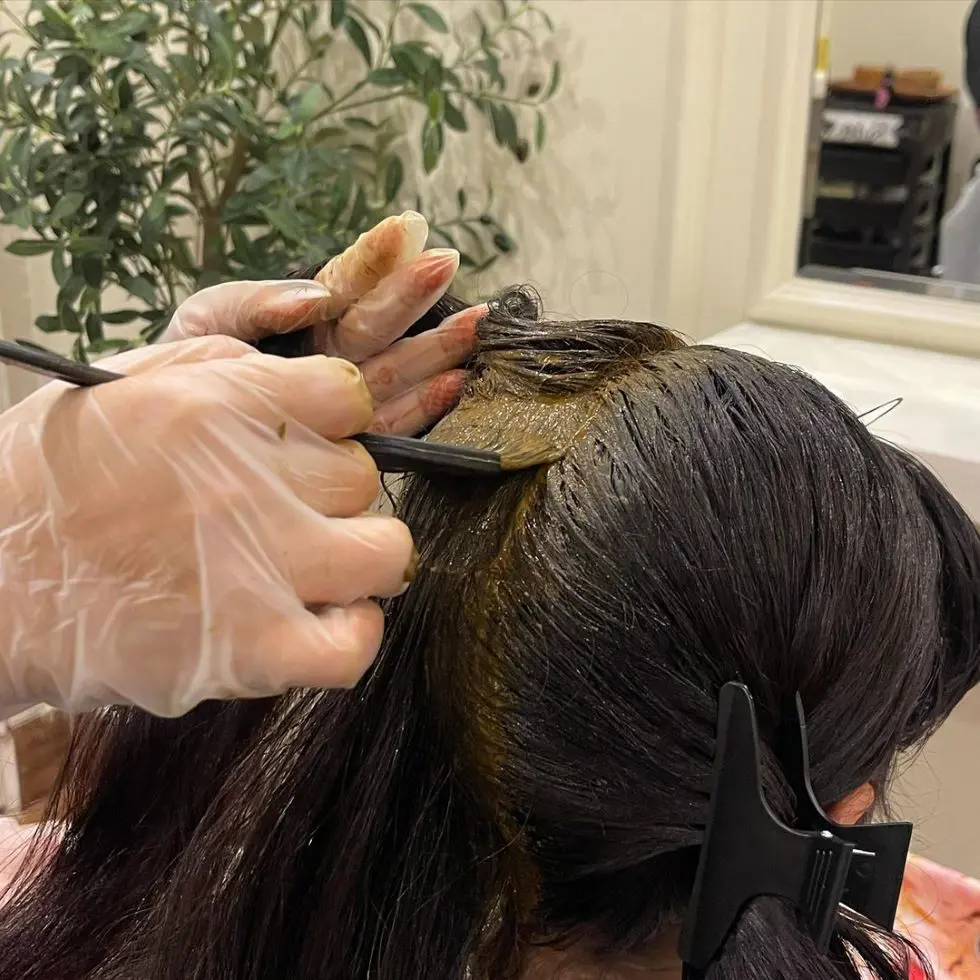
While mehandi, also known as henna, is traditionally used for beautiful body art, it's also a popular home remedy for dandruff. First, gather your ingredients. You'll need mehandi powder, either freshly ground or store-bought, and plain, full-fat yogurt. The yogurt will help create a thick paste and provide moisture to the scalp. You can also add water instead of yogurt, it is totally up to your preference.
Then, part your hair into a section for easy application. Using a brush of your fingers, apply them on your hair and scalp and wait until it is dried. Finally, rinse off thoroughly with lukewarm water to remove all traces of the mehandi paste. Follow up with a gentle shampoo to remove any residue and cleanse your scalp. Start by using this mehandi treatment once a week. If your scalp tolerates it well and you see improvement, you can gradually increase the frequency to 2-3 times a week.
13. Orange Peel
Orange peels are rich in antioxidants like vitamin C, which help protect your scalp from free radical damage. These antioxidants combat oxidative stress, promoting overall scalp health. Additionally, the dried peel has a slightly abrasive texture that can help remove dead skin cells on the scalp, effectively reducing dandruff flakes.
This natural exfoliation helps clear clogged pores and allows your scalp to breathe, promoting healthier hair growth. Furthermore, orange peels contain essential oils that can help moisturize the scalp. A dry scalp can exacerbate flaking and itching, so this additional moisture can be very beneficial. The natural oils in orange peels provide hydration, soothe irritation, and prevent the excessive dryness that often leads to dandruff.
14. Egg Yolk
Dandruff can be a pesky issue, causing itchy flakes and leaving you feeling self-conscious. While medicated shampoos are often the best course of action, some people prefer natural remedies. Egg yolk has been a popular home treatment for dandruff for generations.
Egg yolk is rich in fats and proteins, which can help nourish and moisturize the scalp. It contains vitamins A, D, and E, essential for healthy hair and scalp. These vitamins can promote scalp health and potentially reduce inflammation. Most importantly, it contains biotin, a vitamin B7 that is thought to play a role in hair health and might help treat dandruff.
15. Olive Oil
Olive oil, a natural emollient, is not only a staple in kitchens worldwide but is also a popular home remedy for dandruff. Its rich, moisturizing properties can help hydrate and nourish the scalp, reducing dryness and flakiness. Additionally, olive oil has anti-inflammatory properties that might help soothe an itchy scalp, a common symptom of dandruff.
To use olive oil for dandruff, warm a small amount and gently massage it into your scalp. Leave it on for at least 30 minutes before rinsing it out with a mild shampoo. However, always do a patch test before applying the oil to your entire scalp to check for any allergic reactions or skin sensitivities. This simple yet effective treatment can be incorporated into your weekly hair care routine for a healthier scalp and reduced dandruff.
What is Dandruff?
Dandruff is a common scalp condition characterized by the shedding of dead skin cells from the scalp in the form of white or grayish flakes, which can cause itching and irritation of the scalp. These flakes are often visible on the shoulders or hair of someone with dandruff.
Cause
While the exact cause of dandruff is unknown, but it's believed to be a combination of factors, including-
- Irritated, oily skin
- Dry skin
- A yeast-like fungus (Malassezia) that feeds on oils on most adults' scalps
- Sensitivity to hair care products
- Psoriasis or eczema
Symptoms of Dandruff
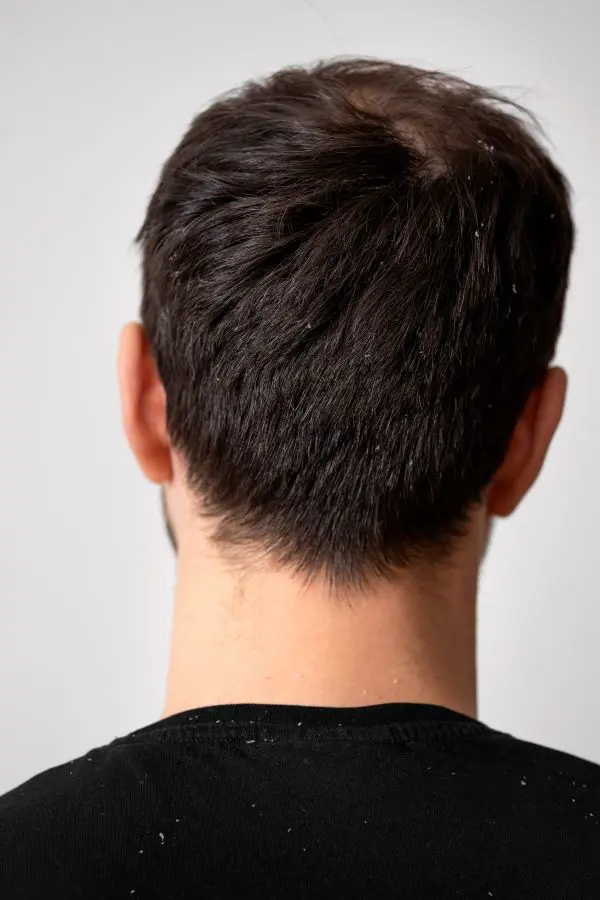
While the presence of visible flakes is the hallmark of dandruff, several other symptoms can accompany them:
• Itchiness: The constant itch can be a major annoyance, distracting and disrupting your daily life.
• Scalp Irritation: The underlying skin might be red, inflamed, or feel tender to the touch.
• Scalp Sensitivity: The scalp might become more sensitive to touch or certain hair care products.
What Causes Dandruff And Dry Scalp
Dandruff and dry scalp are primarily caused by an overgrowth of the yeast-like fungus Malassezia, which can lead to an irritated scalp and increased shedding of dead skin cells. Other contributing factors include dry skin, sensitivity to hair care products (contact dermatitis), and infrequent shampooing, which allows oils and skin cells to accumulate.
Additionally, conditions such as seborrheic dermatitis, characterized by red, greasy skin covered with flaky white or yellow scales, and certain health issues like psoriasis and eczema can also cause dandruff. Environmental factors, stress, and hormonal changes may further exacerbate dandruff symptoms, making it a common yet multifaceted issue.
Recent posts
Lifestyle
Lifestyle
20 Best Foods For Inflammation + What To Avoid
Inflammation is an essential response that the body utilizes in the defense mechanisms against both harm and pathogens; however, if it becomes chronic, it becomes a real issue. Luckily, there are foods out there that are good for this process, more ...
Lifestyle
Nutritional Yeast Benefits, Nutrition and Uses
Often called "nooch", nutritional yeast is a deactivated form of yeast. It is often used to make vegan and dairy-free items. Various studies show that nutritional yeast possesses a range of health benefits. The mineral, vitamin, and antioxidant...
Lifestyle
Is Oatmeal Good For Weight Loss? Facts and Myths
Oatmeal has been a reputed healthy breakfast food for ages. It is derived from oats, a whole grain known for its compact nutrient profile and wide range of health benefits. Oatmeal, mostly rich in fiber, is also popular in weight loss diets. If...
Lifestyle
12 Dark Chocolate Benefits and Nutrition
Dark chocolate, a delightful treat for many is also packed with numerous health advantages. It is a nutritional powerhouse in addition to being a pleasant treat due to its rich velvety taste and remarkable collection of antioxidants. This delicious t...
Lifestyle
Is Chicken Good For Weight Loss? Ways To Eat It
When losing weight, the search for both healthy and filling foods is paramount, and chicken is usually among the best options. In addition to being rich in essential nutrients that play crucial roles in muscle management and overall body healt...
Lifestyle
Are Eggs Good For Weight Loss? Ways To Add
Eggs are loaded with protein and vitamins and therefore, they can be part of your team to help you in losing weight. Consuming eggs in your meals will give you the desired fullness and your appetite will be put under check, thus easily maintaining a...
